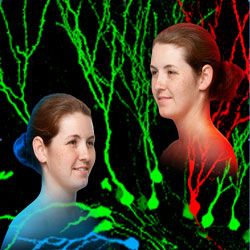Addiction
A Genetic Blueprint for Addiction?
Genes help determine personality, but personality is not a life sentence.
Posted June 4, 2012

Recently I found myself at a Writers’ Festival in Sydney Australia, extremely jet-lagged, flogging my book, doing radio interviews a couple of times a day... And the same question kept coming up: Is addiction genetic? Do you think you became an addict because of the way you were made? There’s got to be something in the basic brain plan that makes you that way. Right?
I don’t think so.
There is simply no gene or combination of genes that is linked with addiction as a trait. That doesn’t mean that genes are not part of the enormously complex causal bouquet that does result in addiction. But the genes that are correlated with addiction are genes for traits like impulsivity. And even these correlations are often weak or inconsistent. Some traits help describe an individual who will, when things get tough, tend toward addiction more than the next guy. But impulsivity also puts you “at risk” for bungee jumping. And nobody is saying that bungee jumping is genetic.
Impulsivity, the opposite of inhibitory control, is known to be correlated with inherited (genetic) factors. And the lynchpin of this correlation is believed to be brain mechanics. So a recent study, which claims to be the largest of its kind, looked at the brain activation patterns underlying impulse control. The researchers identified multiple (prefrontal) brain networks involved with impulse control…which means they’re involved with its opposite – impulsivity. But each network was associated with a different style or type of impulsivity. Moreover, activation in one of these networks correlated with early drug or alcohol use, while activation in a different network correlated with ADHD symptoms. Already this shows that an individual’s particular brand of impulsivity lends itself to a different constellation of problems.
Of most interest, the pattern associated with early drug use was not a result of drug-taking but a predisposing factor. Does that mean we are beginning to discover the neural recipe for addiction?
Not at all. It means that a particular style of impulsivity predisposes teens to experiment with drugs or alcohol. It also predisposes them to experiment with a lot of other things, including sex, travel, motorcylces, and quite possibly bungee jumping. Notably, this particular brain pattern was not linked to any genetic variant. These adolescent brains have already grown up in their own specific environments, and brains rewire themselves with experience, day by day, week by week, year by year. In other words, these brain patterns were not preformed in the womb: they emerged over time. So genetic links, which are often insubstantial to begin with, have to step aside to make room for the role of experience.
Genetic links? Yes. Genetic determinism? No way. The relations between genes and brain structures help – among many other factors – to build personality dispositions. They do not build addiction. Addiction is an outcome, a result of a particular set of life experiences, a learned pattern of thought and behaviour. There are many brands of misfortune, both inside and outside our bodies, that can move us toward this outcome.
At the Sydney festival I was interviewed with another author in front of a large audience; he and I were encouraged to take off from the questions and start our own conversation. I met this guy in the lobby, a half hour earlier. His name is Lemon Andersen – that's right, his first name is Lemon – and he’s this short, slender, cool looking poet dude from Brooklyn, with a Hispanic accent that makes him even more cool. His style of oral performance is related to “slam poetry,” he’s been mentored by Spike Lee, and he won a Tony in his mid-twenties. Now he’s in his mid-thirties. His parents met at a methadone clinic in Brooklyn. They were both long-term junkies, and they both died of AIDS.
Lemon has never taken drugs. He sold them, to get by in an impoverished housing project, but he never took them himself.
We were in the same session because we both had had a lot of addiction in our lives. But when I first met this guy, I wondered if there’d be any rapport. The Beat poet and the dowdy professor? As it turned out, we practically fell in love on-stage. Maybe because we’ve both struggled to get away from drugs. Maybe because we’ve both found a calling that helped us stay balanced. Do you know why Lemon has never touched drugs? Because he was afraid to. Simple as that.
With all that genetics working against him – so you might think – he took a different path. His own path.
That’s what we all do, whatever it is we’re made of and wherever it is we come from. Masters of our fate? No. But we create our own masterpiece – ourselves – from a multidimensional palette.
(Please also visit my website for reviews and interviews related to my recent book, Memoirs of an Addicted Brain, and for direct links to Amazon for purchasing it.)


